The Intel 12th Gen Core i9-12900K Review: Hybrid Performance Brings Hybrid Complexity
by Dr. Ian Cutress & Andrei Frumusanu on November 4, 2021 9:00 AM ESTCPU Benchmark Performance: Intel vs AMD
Here are the graphs you've probably be wanting to see. Here we've listed Intel's last few flagships, along with AMD's Zen 3 offerings. In no particular order, here is the CPU performance.
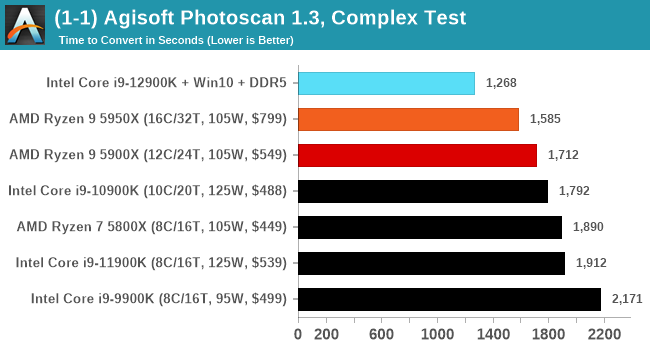
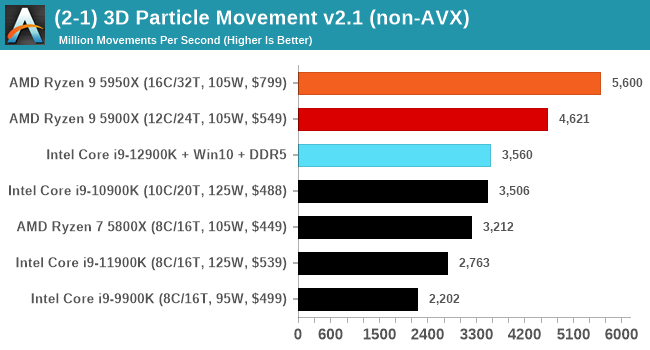
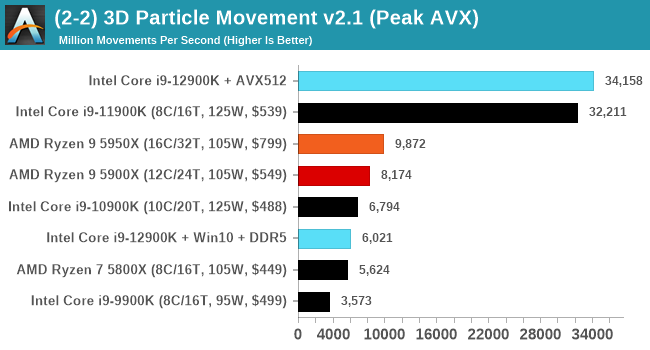
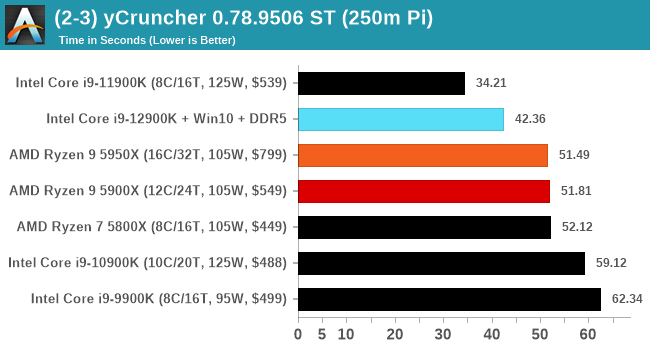
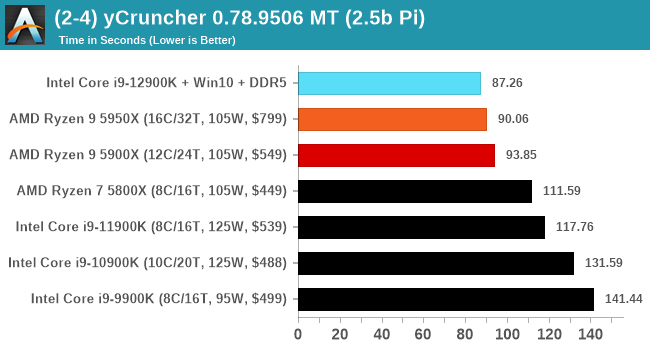
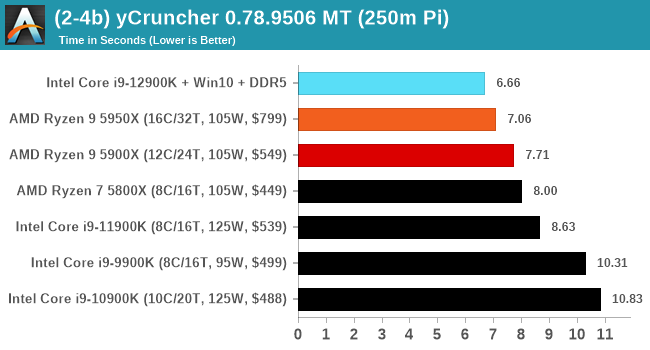
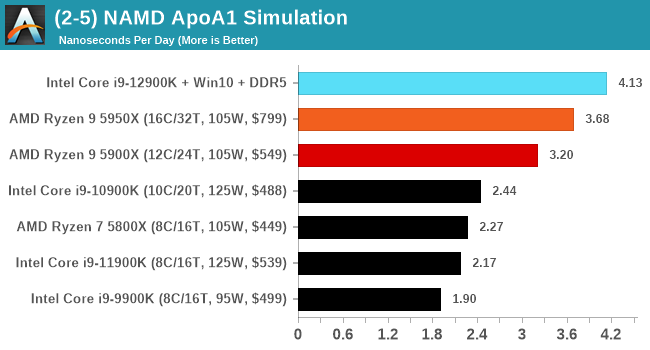
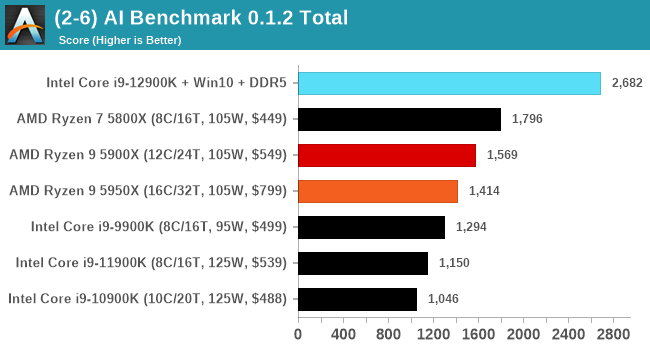
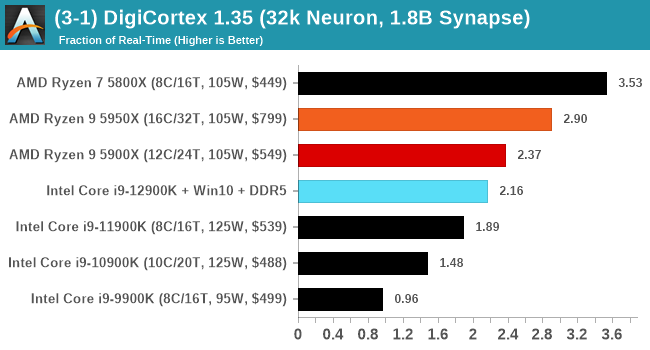
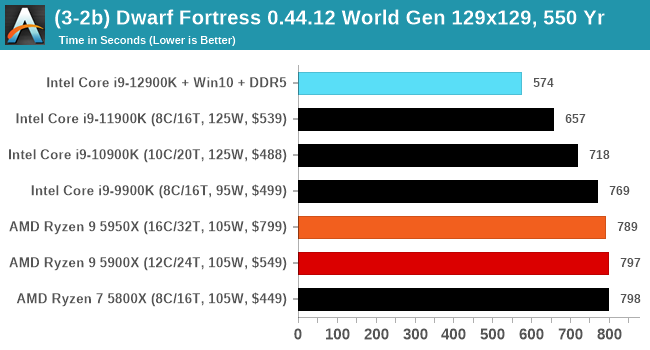
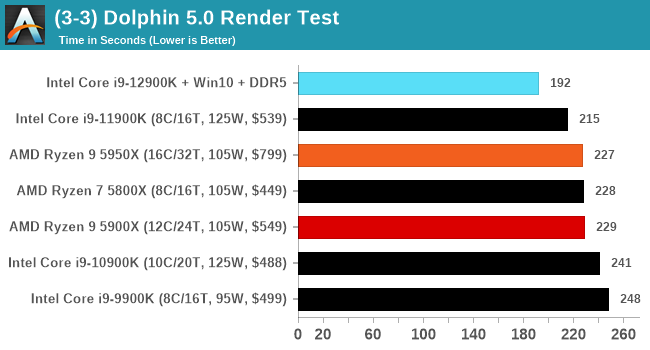
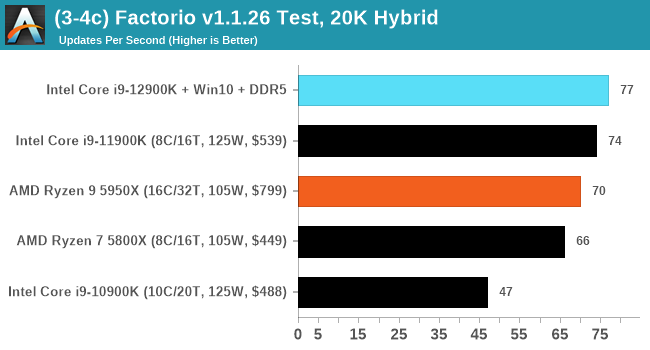
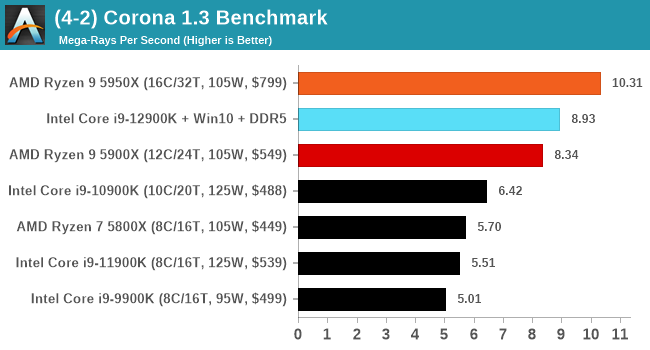
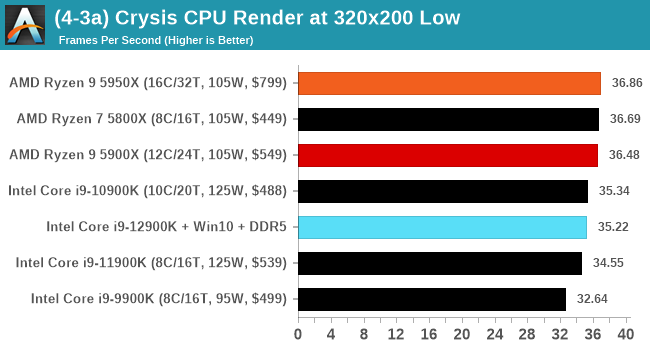
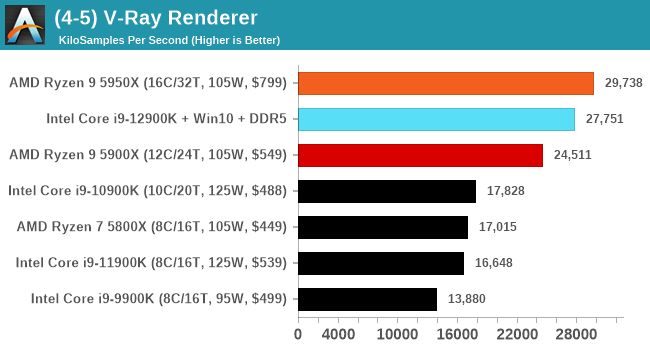
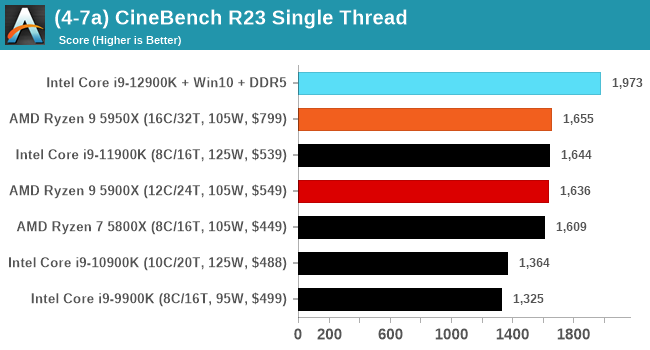
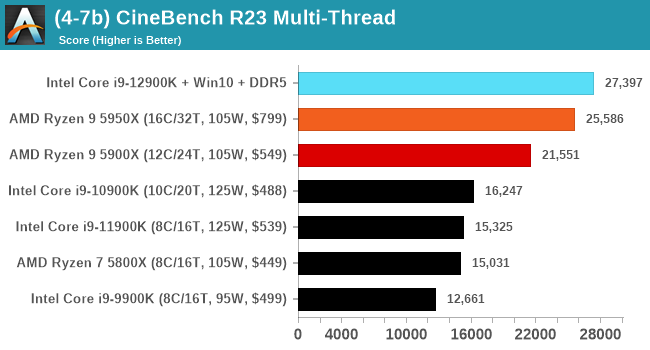
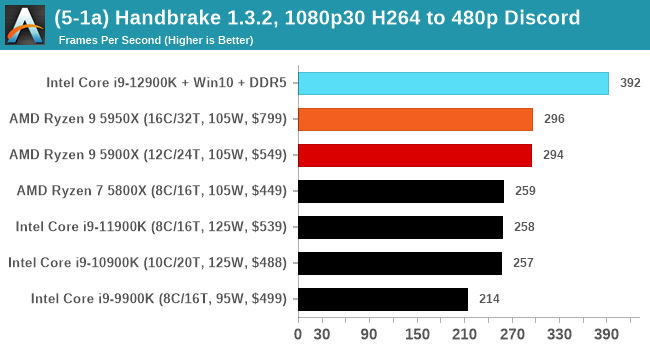
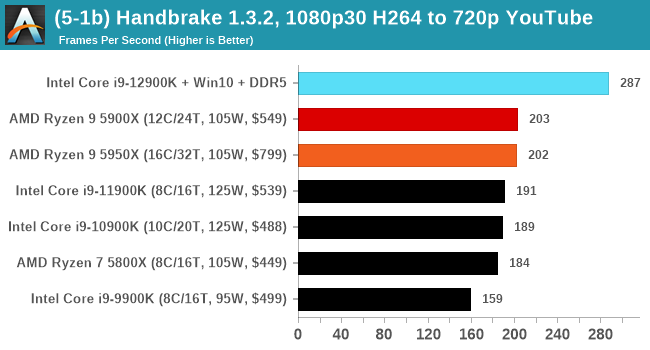
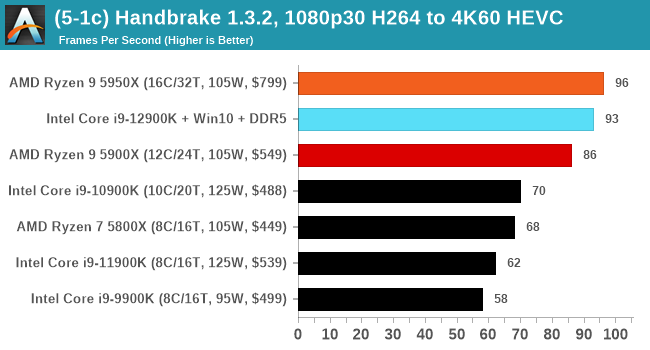
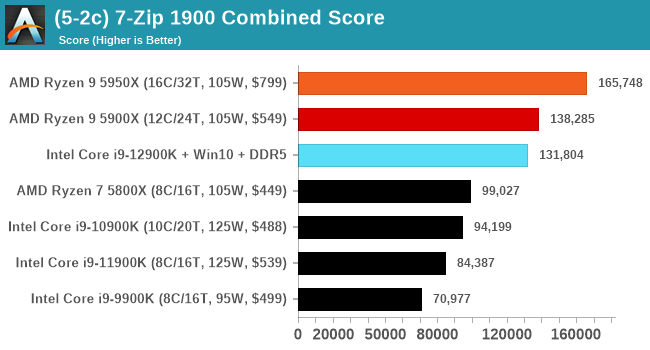
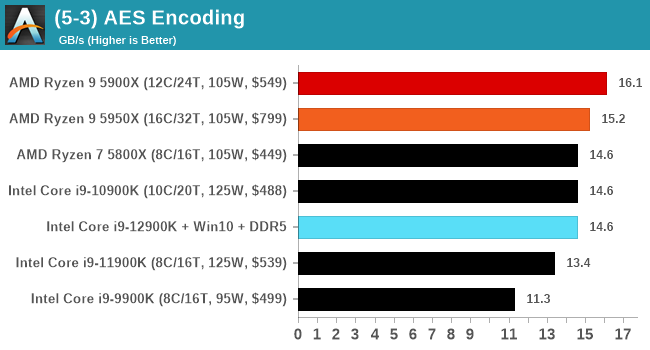
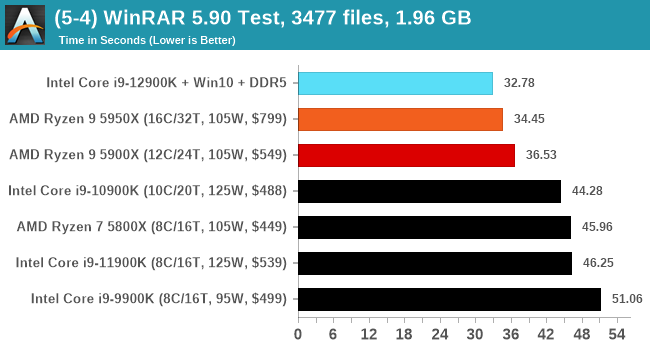
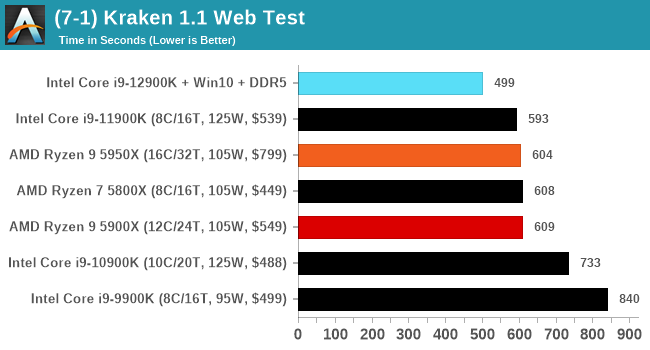
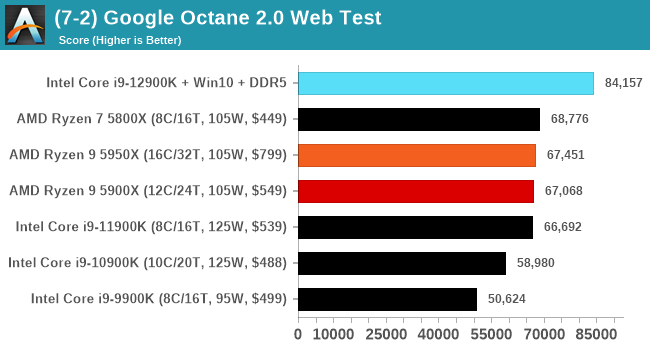
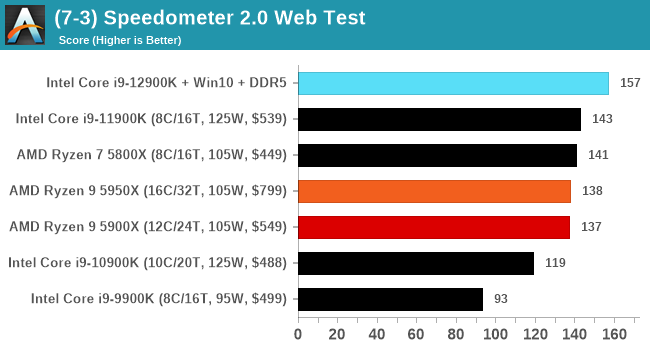
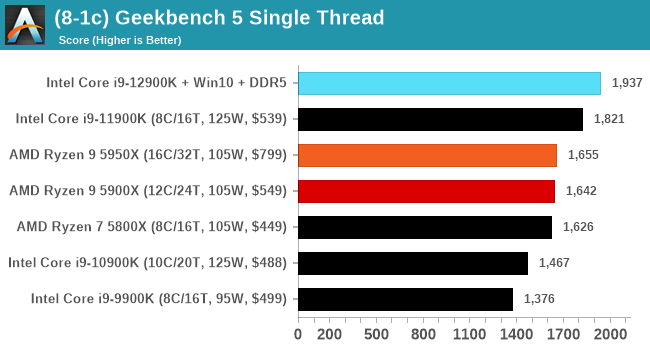
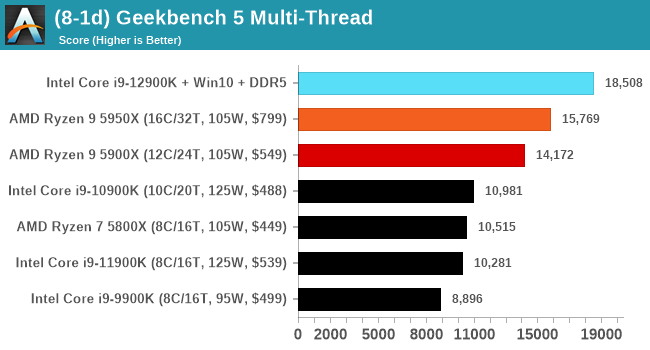
It's hard to miss a lot of blue bars at the top of these charts. ST performance usually reigns supreme, and it shines though. Intel does take a few other wins here in multi-threaded as well, and users will point to CineBench. CB loves lightweight threads and cores, and with the combined improvements in the out-of-order window in both cores as well as memory access improvements into the L2 caches.










474 Comments
View All Comments
Netmsm - Sunday, November 7, 2021 - link
I believe, we're not talking about ISO-efficiency or manufacturing or engineering details as facts! These are facts but in the appropriate discussion. Here, we have results. These results are produced by all those technological efforts. In fact, those theoretical improvements are getting concluded in these pragmatical information. Therefore, we should NOT wink at performance per watt in RESULTS - not ISO-related matters.So, the fact, my friend, is Intel new architecture does tend to suck 70-80 percent more power and give 50-60 percent more heat. Just by overclocking 100MHz 12900k jumps from ~80-85 to 100 degrees centigrade while consuming ~300 watts.
Once in past, AMD tried to get ahead of Nvidia by 6990 in performance because they coveted the most powerful graphic card title. AMD made the hottest and the noisiest graphic card in the history and now Intel is mimicking :))
One can argue that it is natural when you cannot stop or catch a rival so try to do some chicaneries. As it is very clear that Anandtech deliberately does not tend to put even the nominal TDP of Intel 12900k in their benches. I loathe this iniquitous practice!
Wrs - Sunday, November 7, 2021 - link
@Netmsm I believe the mistake is construing performance-per-watt (PPW) of a consumer chip as indicative of PPW for a future server chip based on the same core. Consumer chips are typically optimized for performance-per-area (PPA) because consumers want snappiness and they are afraid of high purchase costs while simultaneously caring much less than datacenters about cost of electricity.Netmsm - Monday, November 8, 2021 - link
@Wrs You cannot totally separate efficiency of consumer and enterprise chips!As an incontrovertible fact, architecture is what primarily (not completely) determines the efficacy of a processor.
Is Intel going to kit out upcoming server CPUs in an improved architecture?
Wrs - Monday, November 8, 2021 - link
@Netmsm Architecture, process, and configuration all can heavily impact efficiency/PPW. I’m not aware of any architectural reason that Golden Cove would be much less efficient. It’s a mildly larger core, but it doesn’t have outrageous pipelining or execution imbalances. It derives from a lineage of reasonably efficient cores, and they had to be as they remained on aging 14nm. Processwise Intel 7 isn’t much less efficient than TSMC N7, either. (It could even be more efficient, but analysis hasn’t been precise enough to tell.) But clearly ADL in a 12900/12700k is set up to be inefficient yet performant at high load by virtue of high frequency/voltage scaling and thermal density. I could do almost the same on a dual CCD Ryzen, before running into AM4 socket limits. That’s obviously not how either company approaches server chips.Netmsm - Tuesday, November 9, 2021 - link
When you cannot infer or appraise or guess we should drop it for now and wait for real tests of upcoming server chips to come.regards ^_^
GamingRiggz - Tuesday, March 15, 2022 - link
Thankfully you are no engineer.AbRASiON - Thursday, November 4, 2021 - link
AMD would have less of an issue If the 5000 processors weren’t originally priced gouged.Many people held off switching teams due to that. Instead of the processor being an amazing must buy, it was just a decent purchase. So they waited.
If you’re On the back foot in this game, you should be competing hard always to get that stranglehold and mind share.
I’m glad they’re competing though and hopefully they release some very competitive and REASONABLY PRICED products in the near future.
Fataliity - Thursday, November 4, 2021 - link
Their revenue and marketshare #'s beg to disagree.Spunjji - Friday, November 5, 2021 - link
They've been selling every CPU they can make. There are shortages of every Zen 3 based notebook out there (to the extent that some OEMs have cancelled certain models) and they're selling so many products based on the desktop chiplets that Threadripper 5000 simply isn't a thing. You ought to factor that into your assessment of how they're doing.BillBear - Thursday, November 4, 2021 - link
Is anyone gullible enough to forget more than a decade of price gouging, low core counts and nearly nonexistent performance increases we got from Intel, vs. the high core counts, increasing performance, and lower prices we got from AMD?